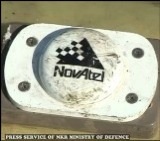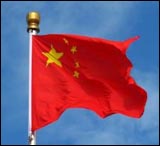 With the August 15 implementation date for the new dual and third country national rule fast approaching, I wanted to comment briefly on the Sample Questionnaire that the Directorate of Defense Trade Controls (“DDTC”) has proposed as an example of something foreign companies should use to review whether a dual or third-country national has “substantive contacts” with other countries. Under the new rule, foreign companies covered by a technical assistance agreement (“TAA”) can share technical data with full-time employees who are also nationals of countries other than the company receiving the data under the TAA. One of the conditions, however, for using that rule is that the foreign licensee must examine the “substantive contacts” of that third-country or dual national with other countries to determine whether there is a risk of diversion of the technical data outside the home country of the foreign licensee.
With the August 15 implementation date for the new dual and third country national rule fast approaching, I wanted to comment briefly on the Sample Questionnaire that the Directorate of Defense Trade Controls (“DDTC”) has proposed as an example of something foreign companies should use to review whether a dual or third-country national has “substantive contacts” with other countries. Under the new rule, foreign companies covered by a technical assistance agreement (“TAA”) can share technical data with full-time employees who are also nationals of countries other than the company receiving the data under the TAA. One of the conditions, however, for using that rule is that the foreign licensee must examine the “substantive contacts” of that third-country or dual national with other countries to determine whether there is a risk of diversion of the technical data outside the home country of the foreign licensee.
The sample questionnaire proposed by DDTC represents the agency’s suggestion as to one way that such screening should take place. Some of the questions are poorly drafted, and many of the others are just plain silly and can be roughly paraphrased as simply asking the person involved whether or not he or she is a foreign spy — as if they would answer that question truthfully if they were.
In the poor drafting category, we have this question:
Do you have business contacts, business partners, business contracts, brokers, or any other relationship with a business in another country or other countries subject to U.S. or U.N. embargo?
Because the question as to whether there are contacts with “another country” would necessarily include countries subject to embargo, the final clause is unnecessary and potentially confusing.
Also in the poorly drafted category, we have this incredibly broad inquiry:
Have you ever served in or provided information to the government of another country (e.g., military, foreign ministry, intelligence agency or law enforcement)?
Anybody who has ever traveled to a foreign country would have to answer this affirmatively because of the requirement to provide information to customs and immigration officials upon entry in to the country. And, of course, a third country national will have provided tons of information to his home country government in terms of tax returns, driver’s license applications, and the like. And what about state-owned enterprises? Does information provided to them constitute information provided to the government?
Then we have the “are you a spy” questions:
Do you have contacts with any other individuals or groups involved in acquiring controlled defense articles, including technical data, illegally or otherwise circumventing export control laws? Please explain the nature of that contact.
Do you have contacts with agents from another country or another country’s government?
Do you have contacts with agents from another country or another country’s government?
It is a little known historical fact that Mata Hari, when asked questions of these sorts, broke down into tears, confessed to the French government that she was a spy and asked to be immediately taken to the firing squad for execution.
The questionnaire also has the dual or third country national attest that he or she has given the company complete and accurate “social networking addresses.” Apparently whoever wrote this had heard that all the kids these days do these Twitter and Facebook thingies but didn’t really understand how any of them worked. There really isn’t any such thing as a “social network address,” unless the DDTC expects that something like www.facebook.com be provided as a response to this question. Presumably the idea here would be that the employee has allowed the company to follow or “friend” the employee on Facebook, Twitter, Google Plus or the like. This would mean, I guess, that the foreign licensee will then inspect all the tweets or postings of the employee to make sure that he or she hasn’t said in one or more of them that they are passing controlled technical data to foreign government agents. It is probably easier just to not use the exemption.
 Here I had thought that we had shamed most companies from issuing those grandiloquent press releases claiming that ITAR registration from DDTC constitutes incontrovertible proof that the company can leap tall buildings in a single bound, synthesize gold from base metals and recite the entire text of the International Traffic in Arms Regulations by heart. Backwards.
Here I had thought that we had shamed most companies from issuing those grandiloquent press releases claiming that ITAR registration from DDTC constitutes incontrovertible proof that the company can leap tall buildings in a single bound, synthesize gold from base metals and recite the entire text of the International Traffic in Arms Regulations by heart. Backwards.
 Posted by
Posted by  Category:
Category: 

 People looking for an up-to-date version of the International Traffic in Arms Regulations (“ITAR”) on the web might be tempted to rely on the
People looking for an up-to-date version of the International Traffic in Arms Regulations (“ITAR”) on the web might be tempted to rely on the  According to this
According to this  The Department of Justice
The Department of Justice  With the August 15 implementation date for the
With the August 15 implementation date for the 

